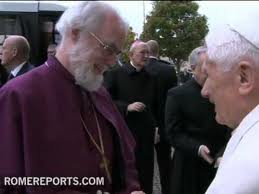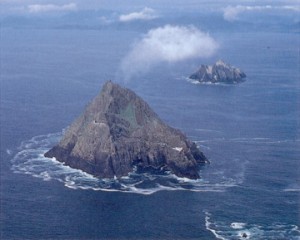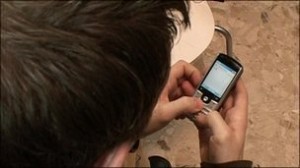The Year of Faith Begins:
Posted by Fr. JonathanOct 12
The Year of Faith began yesterday. Coinciding with the opening of the 2nd Vatican Council, 50 years ago yesterday, 11 October 1962, it is a calling to faith from Pope Benedict.
Fifty years ago I was a young monk, very immature, very opinionated, but chosen by God to belong to him alone, as a monk. He must have had a lot of trust to choose me. He knew very well how often I told him that I wanted to belong to him; however, I am aware of how little I put into the relationship with him, and conversely, how much he did for me. Over the years, I have listened when my brethren make speeches, given their experience of being a monk for 50 or 60 years, and there is one over-riding theme: a desire to thank God, and all who have supported them over the years, especially their fellow monks. In 2011 it came my turn to make a speech on my Golden Jubilee of monastic life, and it was the same for me. This attitude exemplifies a witness to the life of faith and our knowledge of God, who helps us to change from being self-centred to being other centred – from seeing everything in relation not to the ‘me’ but to the ‘other’.
The Vatican Council has had much more influence on peoples’ lives, in the long term, than has the fully reported scandals, murders and wars of those days. Since Monday of this week, 8th October, a new Synod of the Catholic Church has been going on in Rome. Proceeding even now, it remains unreported by our British media; however, it may be significant to note that this Synod will affect people much more for good, than the present scandal concerning Jimmy Saville – a scandal that continues to make today’s headlines.
 |
Archbishop Rowan Williams with Pope Benedict XVI
Yesterday, 10th October, the Archbishop of Canterbury addressed this Synod of Bishops, on the topic they are getting to ‘grips’ with – ‘The New Evangelisation’. I doubt if many, in England, know about this important English contribution to the Synod of the Catholic Church, made up of Bishops and other invited members, among them Religious men and women and laity. Archbishop Rowan spoke as a brother-believer to the assembly. He explained something of what it is to be a human being, as well as a ‘man of faith’. He underlined the need for people to be changed:
“To be converted to the faith does not mean simply acquiring a new set of beliefs, but becoming a new person, a person in communion with God and others through Jesus Christ.”
He went on to say something very important:
“Only as this begins to happen will I be delivered from treating the gifts of God as yet another set of things I may acquire to make me happy, or to dominate other people. And as this process unfolds, I become more free—to borrow a phrase of St Augustine (Confessions IV.7)—to ‘love human beings in a human way’, to love them not for what they may promise me, to love them not as if they were there to provide me with lasting safety and comfort, but as fragile fellow-creatures held in the love of God. I discover how to see other persons and things for what they are in relation to God, not to me. And it is here that true justice as well as true love has its roots.”
Whatever anyone says, the Spirit of Vatican 2 is still very much alive, given that he has been allowed to speak. This, itself, is an act of faith and trust by Pope Benedict, who personally invited the attendance of the Archbishop of Canterbury, at this important synod.
The way people respond to God has changed over the centuries. In the beginning, post Apostolic times, martyrdom was the high point to be longed for: this was followed by the ‘flight from the world’ of the early monks, when persecution in Europe ended.
 |
Skellig Michael with another Skellig also in view
Some Celtic monks resorted to the Atlantic Ocean, setting up their monastery on a tiny Island called Skellig Michael, about 12 miles from the mainland. It was an extreme example of ‘fuga mundi’ or ‘flight from the world’. To this day, it is quite an adventure to visit the Skelligs. Later, faithful Christians thought that other people were a distraction from God, who is to be loved best by being ‘alone with the Alone’. That spirit is still very strong, and links to the idea that I, alone, and God, are the basics in the best way to find God. Since we are also encouraged to be ‘self-reliant, and in control of our own lives’, there is a very strong tendency to ‘go it alone – individually – to God’, even in today’s world. We are often, not trusting of others, but suspicious and defensive when it comes to others, who may be a threat to my position in life, my job to be done. This individualism is reinforced by modern technology, the motor car and many of the ‘gismos’ that we have all around us.
 |
Young person on a mobile ‘phone
They lock me into myself, often, and I can fail to relate to my immediate neighbour, though I can talk to a person far away on my mobile.
Now in this very confusing world – the World post Vatican 2 – God is calling us to himself in another way. He is asking us to come to himself on the Journey of Faith – with others – in communion with others. Our neighbour is not to be avoided, but to be loved. Archbishop Rowan is part of this direction of thinking. But so are all the decrees of the Council: the Church, the Light of the Nations; on Revelation, the Liturgy, the Church today, Joy and Hope; on Ecumenism; on the relationship of the Church with non Christians; on Religious Freedom and so forth.
Next week, I would hope to comment on what loving our neighbour means, and how our Journey of Faith links to that mysterious phrase of Jesus:
“Just as you did it to one of the least of these who are members of my family, you did it to me” (Mt 25:40):
To read the blog in its original format, please visit the main blog site.

No comments